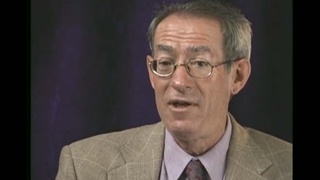Interviews
“Everybody went in like sheep”
Well I said - it was the bitterest experience I ever had. And I think that we should have protested. But I guess that’s why they treated us so good is because we didn’t. Everybody went in like sheep, you know, you didn’t have any…the government had no problem. And I’m sure if they’d have any other ethnic group, they’d really have a fight. I mean - I’m sure that the citizens today would not stand for being in a concentration camp. They’d stand for their rights, but our folks, if…I know…when I told my folks I was so upset that I said I was gonna stand up on the soapbox and I’m gonna do this and…it was all talk, you know. And so, my father told my mother – tell her not to raise, you know, cause trouble. So they, I guess most of the Japanese thought, if the government tells you, you do certain thing, you just do it.
Date: March 31, 2005
Location: California, US
Interviewer: Gwenn M. Jensen
Contributed by: Watase Media Arts Center, Japanese American National Museum
Explore More Videos

Reasons for conformity and competitiveness in Gardena, California
(b. 1946) Lawyer

Role of the redress movement in helping Nisei to open up about their wartime experiences
(b. 1946) Lawyer


Not recognizing father after reunion at Crystal City, Texas
(1937 - 2021) Teacher

A child's memories of activities at Crystal City, Texas
(1937 - 2021) Teacher

Japanese American railroad workers are fired following the bombing of Pearl Harbor
(b. 1923) Chick sexer


A racist encounter at a movie theater following the bombing of Pearl Harbor
(b. 1923) Chick sexer

Losing job with railroad because of being Japanese American
(b. 1923) Chick sexer


Traveling to Manzanar
(b. 1921) Nisei veteran who served in the occupation of Japan


Recalling Pinedale and Tule Lake concentration camps
Judge, only Japanese American to serve on CWRIC.

On the Impact of the Camp Experience
(b. 1942) The first Asian American woman judge

Impressions of student relocation in South Dakota
Judge, only Japanese American to serve on CWRIC.
